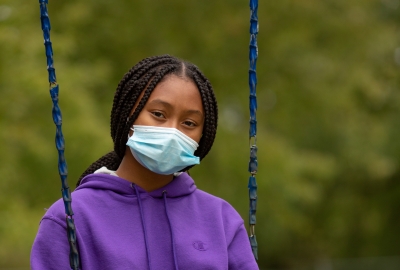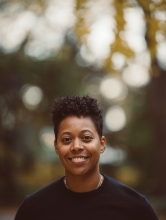
Lessons Learned from Black Communities, and Education for Liberation
By Leah Q. Peoples and Lindsey Foster
Black Americans have always used education as a form of resistance to various systems of oppression. This legacy is consistent across US history even in the most economically depressed, violent, and hostile decades in history. This tradition of Black folks using education to free themselves offers us sage lessons for how we approach education and schooling in the 2020-21 academic school year. Previously, we published four key lessons to learn from Black communities to move forward in this academic school year (you can view them here and here). This blog continues with the final key and perhaps most important lessons necessary for this year characterized by a global pandemic, protests against police brutality, a burgeoning financial crisis, and the inevitable exacerbated issues of educational inequity that will most certainly result from incompetence, anti-Black racism, and fear.
History
Historically, Black folks in America educated themselves when it was illegal to do so, and when there was a refusal by the American government to properly do so either (Anderson 1988). They did so through varying methods, including community schools, Sabbath schools, and Freedom schools. Community schooling in the Black tradition emerged during chattel slavery. Black enslaved people were educating each other through Sabbath schools and community schools on plantations across the South.
It was widely understood and accepted that to educate enslaved and newly freed Black people was to directly contribute to and partially facilitate their freedom (Anderson 1988). As such, it was up to Black people to harness their own freedom and create schools that would do what their government had failed and purposefully avoided doing. One manifestation of that understanding was the creation of Sabbath schools, church-sponsored schools that provided basic literacy to formerly enslaved Black people. The Sabbath schools were “largely black-dominated, relied on local black communities for support, and generally had all-black teaching staffs” whose classes were often held on Sundays, the only day of the week that enslaved Africans did not have to work (Anderson 1988). The establishment of these informal schools was critical to the advancement of formerly enslaved Africans.
Stay Focused on Liberation
Today, white supremacy (and more specifically, what Black intellectuals bell hooks, Laverne Cox and a disability critique call cisnormative heteronormative imperialist white supremacist capitalist ableist patriarchy) remains the biggest perpetuator of oppression, marginalization, inequalities, and violence. Each of these terms represent an institutionalized system of oppression that is also reinforced socially: cisnormative (transphobia), heternormative (homophobia), imperialism (colonization), white supremacist (white cultural values, norms, and perspectives as superior and standard), capitalist (exploitation of the working class), abelist (prejudice against people with disabilities, patriarchy (male power and privilege). To achieve liberation, we must all combat these systems of oppression and engage freedom dreaming to create a liberating alternative.
Black and Indigenous folk, people of color (BIPOC), and White folk have done this by fostering a deep and critical understanding of history, double consciousness, ethnic studies, afrofuturism, and by using skills learned in school to imagine new pathways forward.
This is the time to prepare students for the potential impact of COVID-19 and righting injustices that undergird this summer’s civil unrest. Students should learn about combating anti-Black racism from Black communities’ perspectives. White people and students should prepare themselves to follow BIPOC leaders, scholars, and community members. To sustain a focus on liberation, we must also teach important lessons about coping with stress, recovering from harm, and reclaiming one’s sense of peace, in addition to preparing them for potential college and career paths.
Resist
Resist structures of oppression and new school models that dehumanize children during the coronavirus pandemic and racism pandemic. Insist on and maintain the humanity of BIPOC communities (remember that the humanity of white people is seldom challenged and is well protected across all social institutions). Demand that schools, policies, and education leaders respect the humanity of our children, that even before learning can begin, their personhood (especially while experiencing COVID-19 and public Black violence) be respected and prioritized over desires to return to an inequitable school system or business as usual. Since the start of remote learning at the end of the 2019-20 school year, there have been various examples of grades and homework being championed over students’ humanity in ways that lack understanding, adjustment, and grace. The overall assessment about remote learning is simple: it hasn’t worked thus far. It is obvious that critical changes must be made for the 2020-21 school year.
Resistance in the current and upcoming school year requires teachers to lead with grace in assigning students tasks. Students are adjusting to the virtual learning environment and while they are becoming more familiar each day with technology, there are varying inequities that hinder students from adjusting at the same time. Some are without consistent technology and wifi, having to share devices with siblings. Resistance in the remote classroom must include acknowledging, welcoming, and validating the identities that students bring each time they sign on. We must resist the notion that students learn in an aculutral, apolitical, and ahistorical vacuum, devoid of any sociopolitical context.
Reject feigned allyship within education and demand co-conspirators. Allyship, according to Bettina Love, does not require that those who possess privileges “take risks or be in solidarity” with those who are on the societal margins (Love 2019). Co-conspirators, especially white ones, understand and acknowledge the role of oppression in the lives of those they fight with. Love’s circles of support and love for abolitionist teaching and education require educators to be courageous and root their work in collaboration, humility, and accountability.
Cultivate Joy
In times like this, it is especially important to balance struggle with joy. Black joy is a term within the Black community that underscores the joy Black people find and express despite even the most disparaging times. Joy is necessary during any time marked by challenges. There are many things about education that won’t be great this year: decreased opportunities for socialization, more screen time, increased isolation, and more. It is imperative that we be intentional about creating joyful moments during learning every day this school year, even on our most challenging days. Furthermore, the need for joy is not just beneficial for students. Educators must find, and in some cases, regain their joy for teaching and transforming lives. Students are counting on their teachers to support and guide them through this process. There are going to be continued and new challenges that have the potential to cloud the school year but it is essential that we focus on holding onto moments and pockets of joy.
As we continue to traverse these unprecedented times, it is imperative that we lean into the legacy of viewing education as a liberatory tool. The lessons outlined in this three-part blog series will help educators center the humanity, identities, and joy of their students while ensuring that resistance and resourcefulness are integral pieces of the classroom environment and that students do more than just survive this school year, that they thrive.


